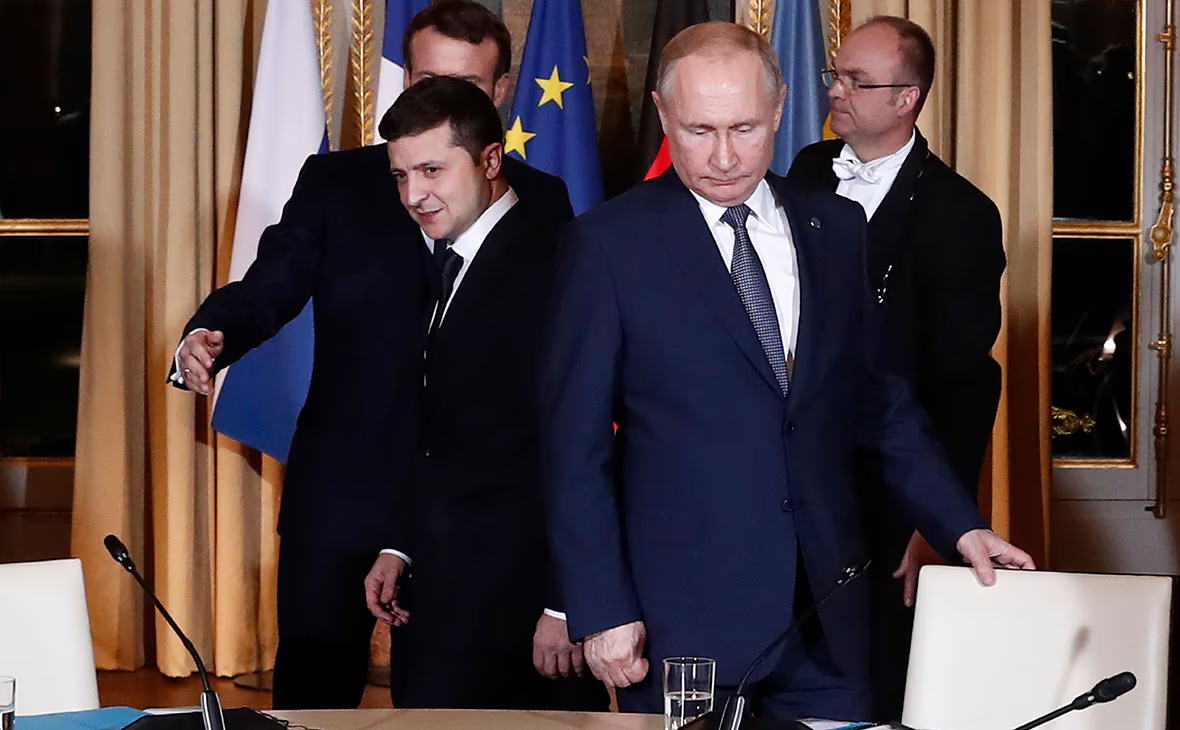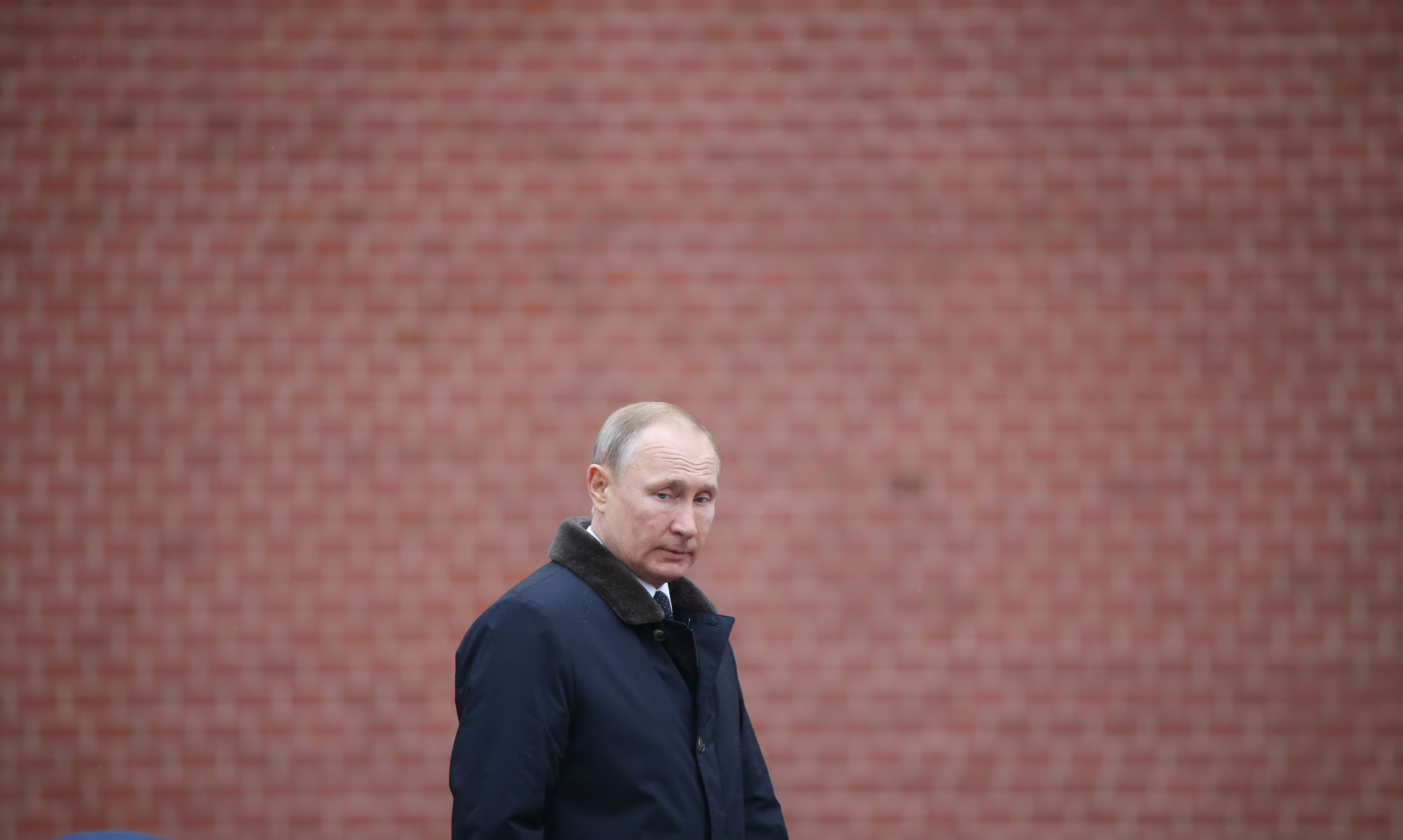When a new war erupted in the Middle East—between Israel and Iran—Moscow found itself in an unexpectedly vulnerable position. For the Kremlin, Tehran has long been more than just a partner; it has served as a symbolic ally in the shared struggle against the West. But Russia’s foreign policy, weighed down by the war in Ukraine and a loss of international credibility, can now neither protect nor influence. The attempt to act as a mediator risks becoming yet another foreign policy failure—laying bare the contradictions in which Russia is trapped: between the rhetoric of multipolarity and the reality of diplomatic impotence.
Russia Between Ally and Bargaining Chip: Why the Kremlin Cannot Save Iran
The war between Israel and Iran—one that may soon involve the Trump administration—has left the Kremlin at an impasse. The blow landed on a partner whose relationship with Moscow was formalised in January 2025 through a comprehensive strategic partnership agreement.
In the imagination of Russian foreign policy, the Middle East remains a theatre of former influence. In Soviet mythology, a mere hint from Moscow was enough to halt aggression—from the threat of nuclear escalation during the Suez Crisis of 1956 to backing Arab armies in wars against Israel. But today’s Russia—mired in a grinding conflict with Ukraine—can no longer afford such posturing.

Volodymyr Zelensky and Vladimir Putin
The tool of nuclear blackmail has already been employed in the Ukraine campaign—and proved largely ineffective. There is little reason to believe that Moscow, unwilling to escalate on behalf of its own interests, would do so for Iran. The limits of its power are becoming increasingly clear.
Moreover, Russia now finds itself in a position it once criticized in the context of Ukraine: according to Putin, the West was allegedly unwilling to defend Kyiv with the same determination that Moscow showed for Donbas. It is now evident that Israel and the U.S. are prepared to go further to bring down Iran than Russia is willing to go to save it.
The paradox is that Iran’s enemies are not enemies of Russia. Israel, the Arab monarchies, and even Trump’s circle are not engaged in active confrontation with the Kremlin. Putin still harbors hopes for a "grand bargain" with Trump—a potential path to freezing or reshaping the war in Ukraine on favorable terms.
Nevertheless, Iran remains a partner Moscow does not want to see collapse. Just as China, while backing Russia, does not require its victory, the Kremlin does not demand Iran’s triumph—but it cannot accept its downfall. Direct military intervention is off the table, yet Moscow seeks to portray itself as a mediator capable of containing the crisis.

Ali Khamenei and Vladimir Putin
Iran as an Ideological Mirror. Why Its Fall Is Dangerous for Russia
In the short term, the war between Israel and Iran benefits Russia. Oil prices have risen from $65–70 to $78 per barrel and are likely to climb further. Any new escalation shifts attention away from Ukraine, blurs the boundaries of acceptable conduct in international politics, and provides the Kremlin with contemporary examples of double standards.
Events that would previously have dominated headlines—such as the crater left by the strike on a residential building in Kyiv on June 17—are now overshadowed by the humanitarian disaster in Gaza and the attacks on Iran. For Moscow, bogged down in a protracted war, every new conflict is an opportunity to get lost in the noise, deflect blame, and normalize its own violence. The Kremlin has long used others’ sins as a smokescreen—doing so with particular cynicism while portraying itself as a defender of Christianity, where moral relativism is explicitly condemned. But like law or science, Putin turns faith into a tool.
Nevertheless, the strategic costs of the strike on Iran outweigh the short-term benefits. Since the start of the war in Ukraine, Russia’s relationship with Tehran has shifted from pragmatic cooperation to a full-fledged alliance. Iran supplies Shahed drones, helps circumvent sanctions, and participates in the resale of Russian energy resources. Since 2022, it has joined BRICS and the Shanghai Cooperation Organisation, and gained observer status in the Eurasian Economic Union—Russia’s last remaining sphere of integrative leadership.
But the partnership is not only about mutual gain. Iran is an ideologically kindred regime. Its anti-Western rhetoric rests on the same foundations as Russia’s: a mix of revolutionary traditionalism and a cult of "traditional values." It embodies the Kremlin’s vision of multipolarity—where power matters more than human rights, and sovereignty means immunity from public accountability. The potential collapse of Iran would represent not only a geopolitical but also a symbolic loss for Moscow.

Владимир Путин и Ибрагим Раиси
For Russia, the invasion of Ukraine is not seen as a violation of another country’s sovereignty. In the Kremlin’s logic, Ukraine is a "breakaway part" of a greater geopolitical pole. Iran, by contrast, is a state "sovereign by definition." Its collapse would bring down the entire construct of an alternative world order.
That is why Moscow’s official statements on Israel’s strikes against Iran echo the tone of Western condemnations of Russia following February 24, 2022. The only difference is that the Kremlin does not apply this rhetoric to itself—but eagerly uses it in the case of Iran, as yet another opportunity to accuse the West of double standards.
The situation is further complicated by the fact that Israel is not an enemy. Amid Western isolation, it remains perhaps the only country that the Kremlin sees as "unfriendly, but not hostile." Russia’s military circles respect Israel’s decisiveness. And Trump—despite his unpredictability—is still viewed as a potential partner for a future "deal."
As a result, the Kremlin is losing its sense of direction. Putin now finds himself in a situation similar to the one he once mocked Trump for: both are accused of being soft, both insist that one must talk to adversaries if peace is the goal. The problem is, peace doesn’t necessarily follow.
Back to Syria? Why Moscow’s Bet on Middle East Mediation No Longer Works
After the annexation of Crimea and the war in Donbas, Russia found itself isolated—but managed to reassert its international role by intervening in Syria. At the time, Moscow began to be seen not just as a target of sanctions, but as a participant in "matters of global significance." Today, the Kremlin once again hopes to shift attention away from Ukraine by stepping into the Middle East crisis—this time as a mediator between Israel and Iran.
But the circumstances are different now. Unlike the Syrian campaign, where Russia acted unilaterally, mediation requires the consent of both parties—and the blessing of Washington. Iran’s adversaries are not marginal groups but Israel and, potentially, the United States.
Since February, the Kremlin has emphasized its willingness to engage in resolving the Iranian nuclear issue. In the first Putin–Trump call on February 12, Moscow attempted to broaden the agenda beyond Ukraine. In March, Reuters reported that Russia had offered to mediate. In April, Foreign Minister Lavrov welcomed U.S.–Iran talks, stressing Tehran’s "legitimate interests."
After the Israeli airstrikes began, Putin intensified his efforts—reaching out to Netanyahu, Pezeshkian, and Trump. The latter initially expressed interest, but by June 14 responded dismissively: "Do me a favor—be a mediator in your own backyard."

Benjamin Netanyahu, Vladimir Putin, and Kirill Dmitriev at the May 9 Victory Day celebrations in Moscow.
Trump's remark is widely quoted by Russian media—perhaps as a signal that his stance could shift. But skepticism about Moscow’s role as a mediator extends beyond the U.S.
Officially, relations with Israel remain intact, but public opinion there has shifted since October 7. Israel accuses Russia of maintaining contacts with Hamas and possibly transferring technology that helps Iranian missiles evade air defense systems.
Tehran, for its part, politely thanks Moscow but without emphasizing its uniqueness. In statements by Iran's Foreign Ministry, Lavrov is mentioned among others, and Iran’s ambassador to Moscow says only: "Iran will not forget which countries supported us"—a phrase that sounds more like a reproach than appreciation.
This distancing reflects more than diplomatic restraint. In Iran, there is concern that Putin and Trump could reach an agreement behind Tehran’s back. Amid economic and political pressure, Moscow may see Iran as a bargaining chip in negotiations with the U.S.
Notably, Russian involvement is barely mentioned in Iranian propaganda. The main focus is on Iran’s own strength and military valor. The message is clear: Iran will manage on its own.
The Kremlin thus faces a double distrust. Its initiative is ignored by both the West and Tehran. Unlike in 2015, when Russia entered the game with military leverage, today it can only ask—and wait. It’s a role Moscow is not accustomed to playing.
A Peacemaker Without Trust: Why Neither the West Nor Russia’s Allies Believe in Moscow Anymore
Russia’s claim to a mediating role in the Middle East conflict rests on two assets inherited more from the late perestroika era than from Soviet might: its relative neutrality in the region and its habitual role as a bridge between pariah states and the West. In the early 2000s, Putin sought to moderate dialogue with North Korea, Syria, and Iran.
Successful mediation could symbolically restore Moscow’s place among global powers—despite isolation, war, and sanctions. But there is no demand for such an initiative. Russia’s past attempts to mediate between the West and its adversaries often ended with Moscow openly siding with the latter. Under such conditions, mediation loses credibility. The war against Ukraine has finally shattered Russia’s image as a peacemaker—something Trump pointedly acknowledged with his remark: "Try mediating at home first."

Russia can no longer protect Iran the way it once shielded Assad. It has lost diplomatic leverage and slipped into the ranks of secondary contenders for mediation—alongside Turkey or Qatar. Even blocs like BRICS and the SCO, which the Kremlin promotes as alternatives to the West, have remained on the sidelines. Iran’s accession to these groups triggered neither solidarity nor practical support.
All Putin can do is watch as strikes hit a partner the Kremlin sees as the embodiment of "full sovereignty" and claim that Russia is under no obligation to intervene—citing the absence of military agreements with Tehran and the lack of an official request for help.
But if such a request were to come, Moscow would have nothing to offer. It cannot afford a fallout with either Israel or Trump. The Ukraine campaign has depleted its diplomatic capital, leaving only one card in its hand: the offer to mediate—an offer that has lost its value. Even that is needed by the Kremlin only as a bargaining chip: someone else’s war, traded for its own.
A World Order Without Order

If America No Longer Wants to Lead, Will Europe Take Responsibility for NATO?
For the First Time in 75 Years, the Alliance’s Top Military Role May Go to Europe—and Reshape the Continent’s Security Architecture

Preparing for the Next War Instead of Preventing the Last
SIPRI Report Shows Rising Military Spending, Nuclear Flexibility, and the End of Deterrence

Trump Sets in Motion a Reassessment of Global Agreements
Allies Adjust Trade and Defense Policies to Fit the Priorities of the New U.S. Administration

